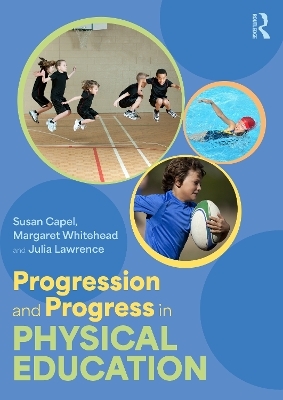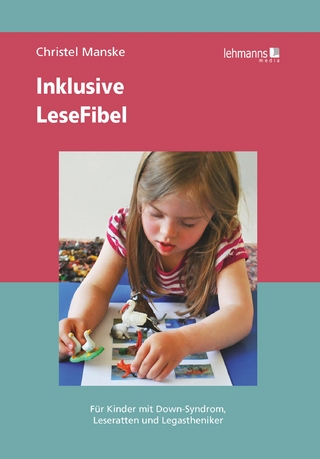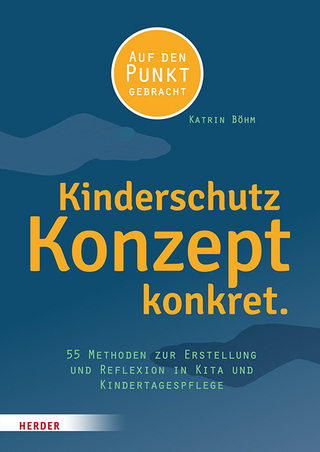
Progression and Progress in Physical Education
Routledge (Verlag)
978-1-032-00120-3 (ISBN)
- Lieferbar (Termin unbekannt)
- Versandkostenfrei innerhalb Deutschlands
- Auch auf Rechnung
- Verfügbarkeit in der Filiale vor Ort prüfen
- Artikel merken
How well do I take account of the needs of different classes and individual learners to facilitate and enhance progress? Do I plan for progress based on where learners are currently at? Does the curriculum facilitate and enhance progress?
Exploring these questions and more, this book examines what progress in physical education looks like and conditions for facilitating and enhancing the progress of individual learners across different domains of learning.
Progression and Progress in Physical Education contains 12 units, each of which highlights an aspect of progression or progress in physical education. Throughout, the book emphasises that it is individual learners that make progress therefore highlighting the importance of catering for the holistic, individual learner. Grouped into four sections, units cover:
- What is meant by progression, progress and learning?
- The holistic nature of individual learners
- The Physical, Cognitive and Affective Domains of learning
- Teaching to facilitate and enhance progress
- Recognising and charting progress
- The role of the curriculum in facilitating and enhancing progress
- The broader context in which physical education teachers work
Filled throughout with examples of existing good practice and useful tips, this text will support all primary and secondary physical education teachers in facilitating and enhancing learner progress in physical education.
Susan Capel is a Professor Emerita at Brunel University, London. Margaret Whitehead is currently a Visiting Professor at the University of Bedfordshire and an Adjunct Professor at the University of Canberra. Julia Lawrence is Assistant Professor at Northumbria University and Secondary Lead Mentor for Scarborough Teaching Alliance.
Unit 1 - Introduction
The purpose of this book: about us: about teachers: about the book: permeation throughout the book: other resources; and so
Unit 2 - Progression, Progress and Learning
Progression and Progress: Progression in physical education: Progress in physical education:
Learning: Theories of Learning: Principles for facilitating and enhancing progress
Unit 3 - The Learner
The holistic nature of the learner endowed with a range of capabilities: Growth and Development: Other factors which impact on learners: Principles for facilitating and enhancing the learning of every learner
Unit 4 - Domains of Learning in Physical Education – An Introduction
Justification for the selection of the three domains of learning in physical education: Analysis of the three domains: Using the Aspects and Foci to recognise Learner Progress: The Ladders of Progress
Unit 5 - The Physical Domain
Descriptions of terms used in the unit: parameters of learning in physical education in compulsory schooling: progress in the physical domain: Aspect 1 Movement Patterns: Aspect 2 Movement Activities
Unit 6 - The Cognitive Domain
The nature of the cognitive domain: The levels of cognitive process: The types of knowledge: The cognitive domain in physical education: Aspect 1 Constituents and principles of movement: Aspect 2 Adopting a physically active lifestyle
Unit 7 - The Affective Domain
The importance of attitudes in progress in physical education: Theory related to the Affective Domain: Progress in the Affective Domain as compared to progress in the Physical and Cognitive Domains: Progress in the Affective Domain: Aspect 1 Motivation: Aspect 2 Confidence: Aspect 3 Autonomy
Unit 8 - Viewing the Physical, Cognitive and Affective Holistically
The holistic nature of individual learner progress: Scenarios of individual learners illustrating the holistic nature of learning
Unit 9 - Teaching to Facilitate and Enhance Progress
Rational, reflective and responsive teaching: Learner-centred teaching: Taking account of learners as holistic and unique: Using the ladders of progress to support the holistic progress of each individual learner: Principles for facilitating and enhancing progress: Supporting learners to take responsibility for own learning
Unit 10 - Recognising and Charting Progress
Recognising and charting learner progress holistically: Recognising and charting the progress of individual learners: Recognising progress: Observation for learning: Assessment for learning: Feedback for learning: Charting progress for learning: Supporting learners to develop their ability to observe, assess provide feedback and to chart their own progress
Unit 11 - The Importance of a Progressive Curriculum in Supporting Learner Progress
Definitions of curriculum and approaches to curriculum planning: The physical education curriculum: Some key considerations in relation to curriculum planning
Unit 12 - The Broader Context
Working together as a team: Working with others in the school: The external context
| Erscheinungsdatum | 23.10.2024 |
|---|---|
| Zusatzinfo | 32 Tables, black and white; 3 Line drawings, black and white; 3 Illustrations, black and white |
| Verlagsort | London |
| Sprache | englisch |
| Maße | 174 x 246 mm |
| Themenwelt | Schulbuch / Wörterbuch |
| Sozialwissenschaften ► Pädagogik ► Schulpädagogik / Grundschule | |
| Sozialwissenschaften ► Pädagogik ► Schulpädagogik / Sekundarstufe I+II | |
| ISBN-10 | 1-032-00120-8 / 1032001208 |
| ISBN-13 | 978-1-032-00120-3 / 9781032001203 |
| Zustand | Neuware |
| Haben Sie eine Frage zum Produkt? |
aus dem Bereich


